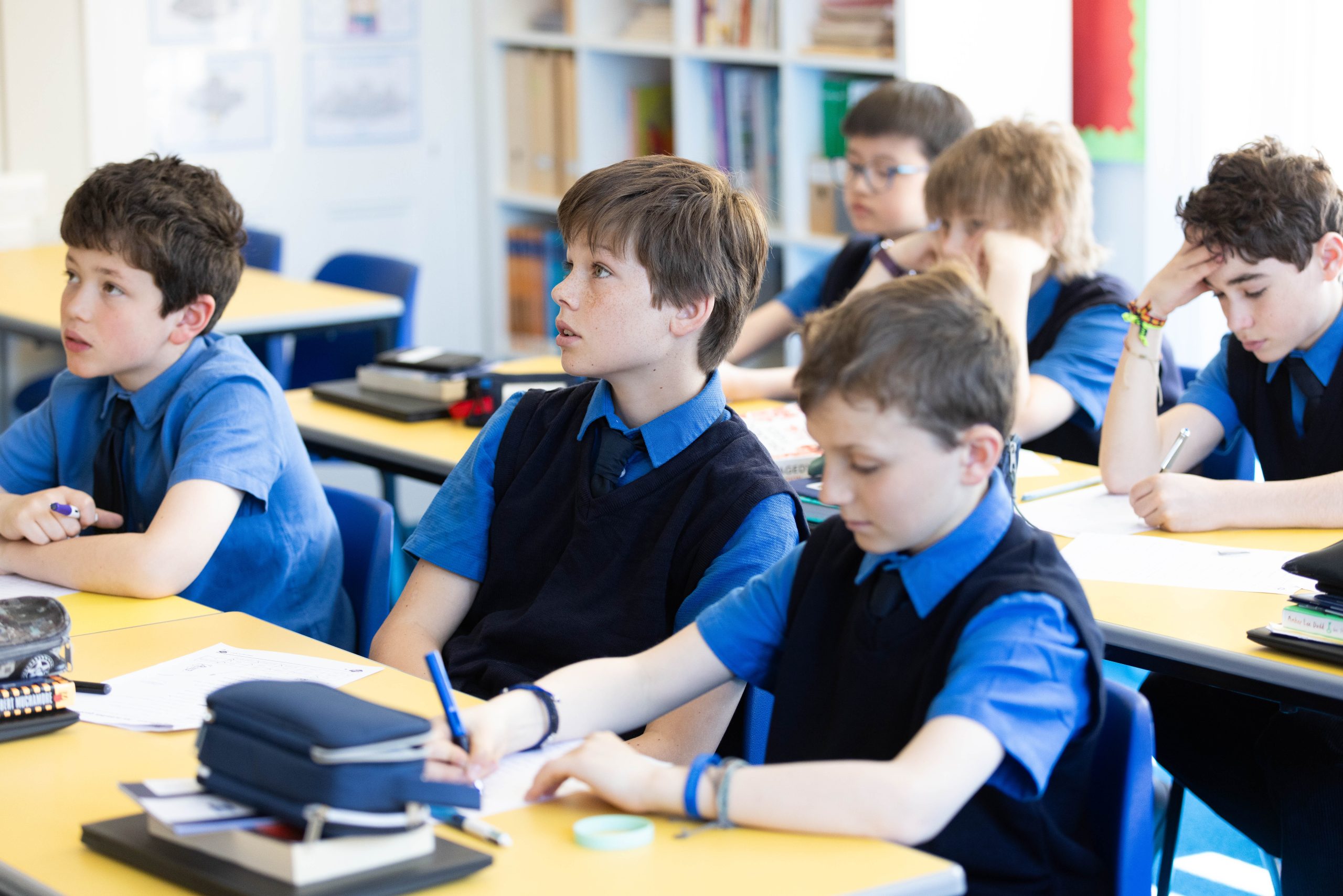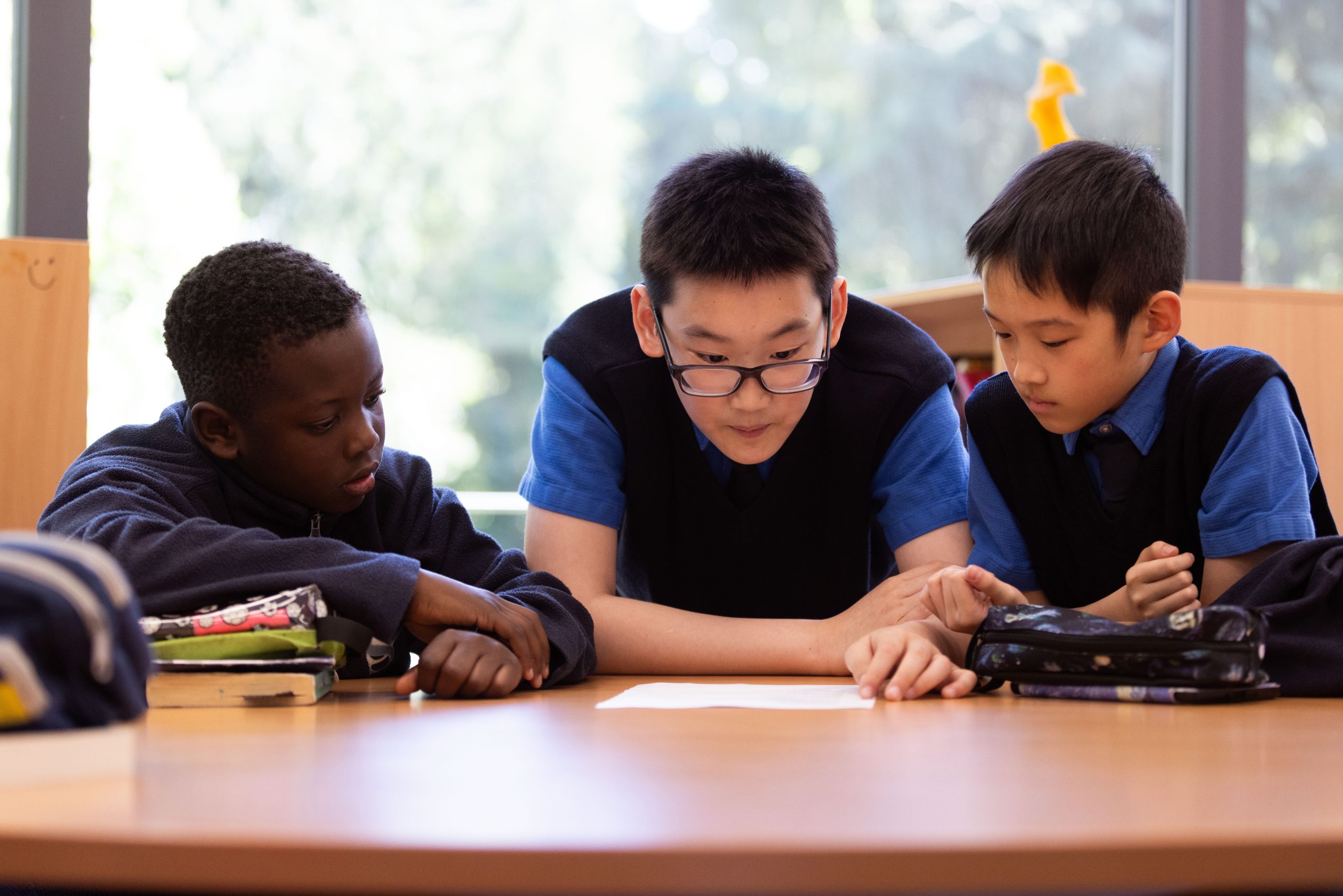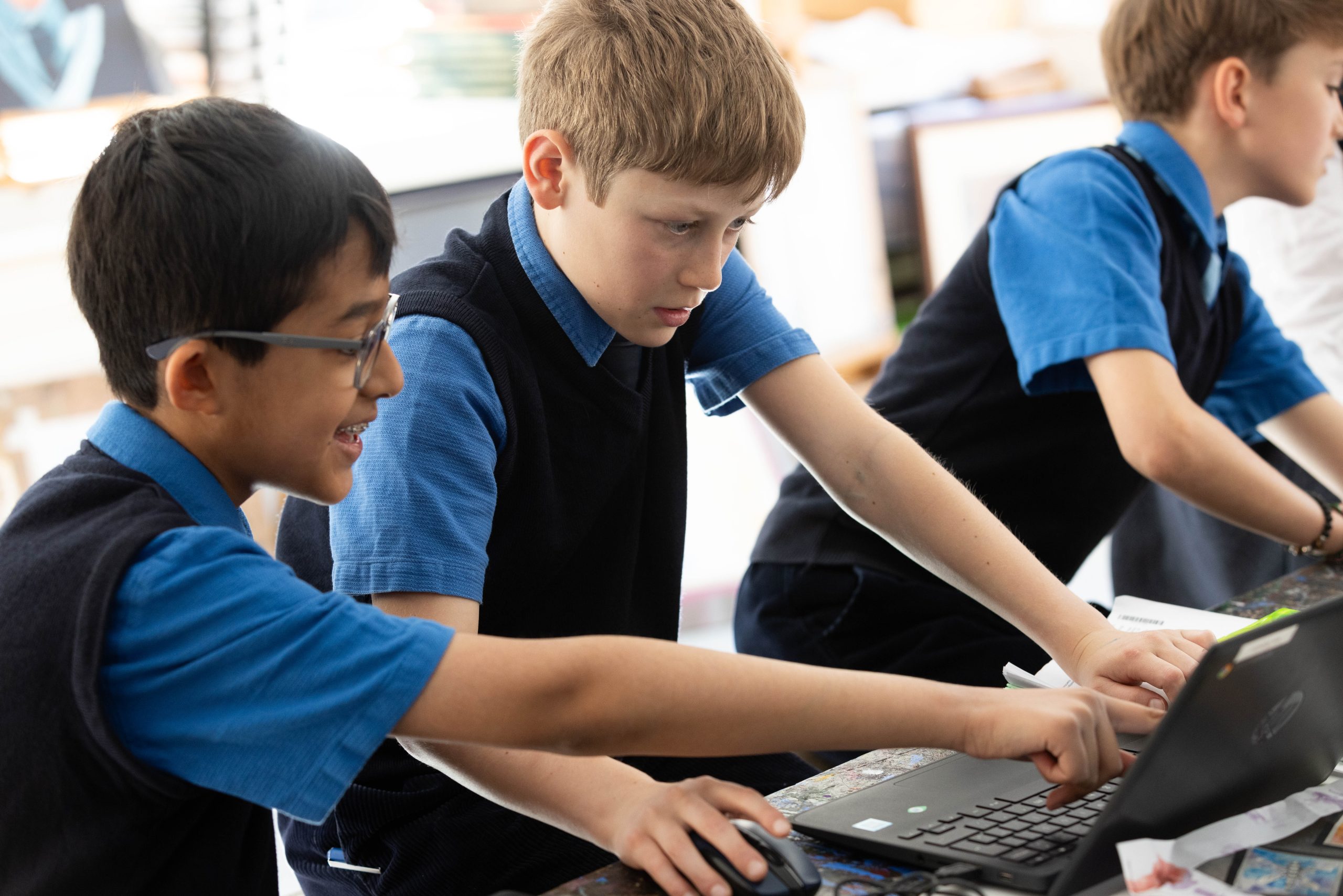Departments
The Subjects We Teach
AIMS & OBJECTIVES
The aim of the classics department is to promote an in depth understanding of the the culture and language of ancient Roman and Greek society with particular emphasis placed on Latin and, where appropriate, ancient Greek.
At Sunningdale all boys from the age of eight learn Latin and in their final years boys can expect up to six periods of Classics per week.
TOPIC AREAS
During their time at Sunningdale boys will:
- Foster an understanding of Latin (and Greek) grammar and vocabulary and explore its usage in modern French and English.
- Learn the myths of ancient Greece and the foundation stories of Rome.
- Explore the ancient history of the Romans and the Greeks.
- Develop an awareness of the major impact and influence both the ancient Romans and Greeks had on western society and language.
AIMS & OBJECTIVES
English at Sunningdale aims to:
- Provide the widest range of social, cultural and academic experiences from which to generate independent and well evidenced opinions and considered judgements.
- Inspire pupils to read and develop a love of reading.
- Use a variety of literacy strategies to help pupils with different needs.
- Ensure that pupils learn Spelling, Punctuation and Grammar (SPAG).
- Promote clear, legible, cursive handwriting.
TOPIC AREAS
Reading: Appropriate non-fiction and fiction, various styles of writing, award winning literature and classical fiction.
Speaking and Listening: Class discussions, class and school debates, declamations and elections.
Writing: Awareness of ‘point of view’ and different methods of communication, such as: poetry, prose, essays, letters, emails, speeches, advertisements. Importance of accurate SPAG emphasized and taught rigorously.
DEBATING
Class debates are held throughout the year and the House Debating Final is held in public towards the end of the academic year.
AIMS & OBJECTIVES
Every boy will have a thorough grasp of the fundamentals of Mathematics
Boys will be aware of the use of Mathematics in everyday life
All Sunningdale pupils will be pushed to achieve their full potential
TOPIC AREAS
Arithmetic
Algebra
Graphs
Geometry
Data handling
TARGETS
The majority of boys will take Common Entrance.
A handful of boys will take Scholarship examinations.
Serious enthusiasts will be entered into national Mathematics competitions.
AIMS & OBJECTIVES
To stimulate curiosity and enthusiasm for French and for the associated culture and traditions.
To realise and maximise the linguistic potential of every pupil.
To develop the ability to use French for purposes of practical communication.
To create a stimulating atmosphere where pupils enjoy learning.
To employ up to date teaching methods and resources which allow all pupils to experience success and enjoyment in their work, whatever their ability.
The basis for the Schemes of work is the ISEB Common Entrance French Syllabus. Pupils will be able, according to their different abilities:
- To follow verbal and written instructions in the target language.
- To understand either the gist or the detailed content of spontaneous conversation or recordings of native speakers, in a range of formal and informal registers within a number of topic areas.
- To use the spoken language effectively and accurately in discussion and narration.
- To identify the important points or the detailed content of written passages and to appreciate the main themes or arguments.
- To use the written language with clarity and precision in controlled situations and in expressing their own ideas.
TOPIC AREAS
Classroom language
Time, dates, numbers, prices
Home, daily routine and chores
Personal Description
Meeting People
Family, friends and pets
Places in town
Tourist information
Finding the way
Weather
Travel and transport
Free time and leisure activities
Visiting a cafe or restaurant
Shopping
School
Jobs
Body, illness and treatment
Holidays
Description of countries, towns and regions
AIMS & OBJECTIVES
Theology, Philosophy and Religion will support children and young people in reflecting upon, developing and affirming their own beliefs, values and attitudes, through an exploration of shared human experiences and of the place and significance of religion in the contemporary world.’
Religious Studies is taught throughout the school in such a way as to reflect the overall aims, values and philosophy of the school.
The Spiritual Moral, Social and Cultural Development of Children:
The 1988 Education Reform Act requires schools to ‘promote the spiritual, moral and cultural development of pupils at the school and in society’ (paragraph 1:2) through the provision of a broad and balanced curriculum. Although schools are not specifically required to promote the social development of pupils, it is very much a feature of the life and work of pupils.
At Sunningdale, Religious Studies and Religious Education plays an important role, along with all other curriculum areas in promoting the spiritual, moral, social and cultural development of our children.
TOPIC AREAS
The following religions and topics have been selected for study:
- Christianity
- Judeo-Christian history
- Contemporary moral issues
- Other world faiths
As Christianity is the predominant religion in both the school’s pupil population and in the community surrounding the school, there is a particular focus on the study of that religion.
AIMS & OBJECTIVES
History is a foundation subject within the National Curriculum. The aims of teaching History at Sunningdale School are consistent with our school philosophy and take account of the National Curriculum Non-statutory Guidelines for History.
To give children a sense of their own identity within our social, political, cultural and economic background and relationships.
To prepare children for living and working in the contemporary world.
To fulfil the requirements of National Curriculum and Common Entrance syllabuses for History.
To ensure the progressive development of historical concepts, knowledge, skills and attitudes.
To provide a History curriculum which is broad, balanced, relevant and differentiated.
To promote positive attitudes towards and enthusiasm for History work in school.
To help children to study life in the past – the thoughts, beliefs, emotions, problems and actions of people who related to each other and their environment.
To help children gain a level of historical understanding appropriate to their age, ability and maturity.
For children to value History as a subject in its own right as well as understanding its contribution to other curriculum areas and cross-curricular themes and dimensions.
TOPIC AREAS
Medieval Realms: Britain 1066-1485
The Making of the United Kingdom: 1485-1750
Britain 1750-circa 1900
AIMS AND OBJECTIVES
Geography at Sunningdale aims to:
-
Promote positive attitudes towards, and enthusiasm for Geography throughout the school.
-
Enable pupils to develop their knowledge and understanding of the world in which they live through structured enquiry and investigation.
-
Develop a Global perspective in which pupils can place local, national, and international events.
-
Foster a concern for the sustainability and conservation of the environment in which we live.
-
Allow pupils to gain an understanding of the processes that produce pattern and change on the Earth’s surface.
-
Provide a Geography curriculum that is relevant, topical, broad, and balanced.
-
Develop the use of important Geographical skills through practical, enquiry based learning.
-
Measure and ensure the progressive development of Geographical concepts, knowledge, skills, and aptitudes.
TOPIC AREAS
In order to facilitate the above and prepare the boys for Common Entrance 5 main topic areas are studied at Sunningdale. These are:
-
Volcanoes & Earthquakes
-
Weather and Climate
-
Rivers and Coasts
-
Population & Settlements
-
Industry & transport
In addition to this, in their final year, all of the Common Entrance candidates and scholars undertake a piece of coursework.
During their time at Sunningdale the boys will also have the opportunity to visit the Queen Elizabeth Olympic Park to use the facilities and learn about sustainability, The Natural History museum where they can experience an earthquake simulator and The Living Rainforest to learn about the animals and plants in the lungs of our world.
Sunningdale boasts a thriving Science Department and is well equipped with a brand new laboratory. At Sunningdale science is not just a subject, it is a way of knowing; a process of thought, derived and supported by a great deal of experimentation and observation. The emphasis is very much on exploration and having fun, and the boys are constantly pushed to think creatively in order to try and understand the world around them. Science is a core subject in the National Curriculum and in the Common Entrance examination. The four attainment targets are: Scientific enquiry, Life & living processes, Materials and their properties, and Physical processes.
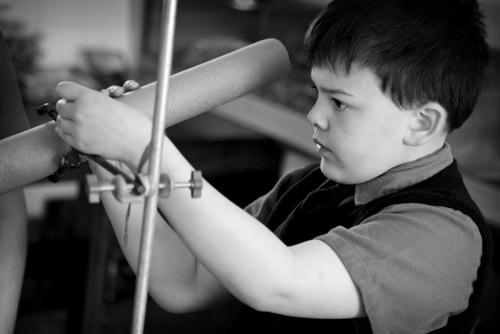
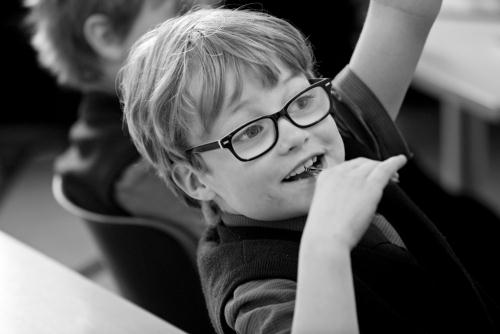
AIMS & OBJECTIVES
To develop an interest and an enthusiasm for science. To develop a range of laboratory skills, including handling apparatus and chemicals safely and competently. To plan an investigation. To make accurate observations and present data accurately. To cultivate an understanding of the scientific method which will involve the design of fair and controlled experiments. To interpret observations and draw conclusions.
LECTURES AND TRIPS
Throughout the forthcoming year the Science Department will be organising a number of lectures and a series of visits to local areas of interest. These visits, like the lectures, are an integral part of our teaching of Science. Visits will include trips to the Natural History Museum, Windsor Great Park & The Royal Botanic Gardens (Kew).
CLUBS
We encourage the children to extend their knowledge and interest in Science by having a weekly science club (Michaelmas & Spring Term), which usually involves making smelly gases and things that go bang! They also thoroughly enjoy looking after the lab aquarium and reptile house.
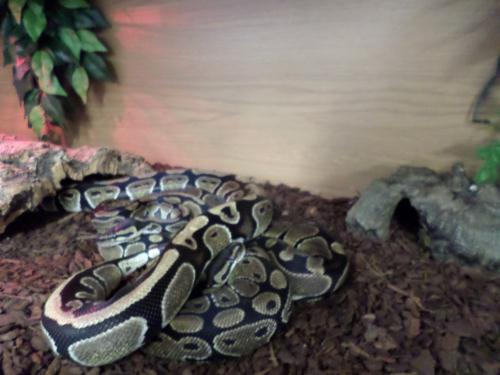
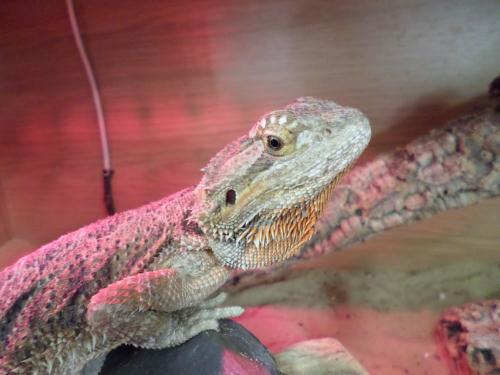
SCIENCE FIELD TRIP
In their final year the Common Entrance candidates go on a joint field trip with the geography department to undertake two habitat studies and enjoy some cosmology. The data which they collect in the habitat studies will allow them to complete an end of year project.
